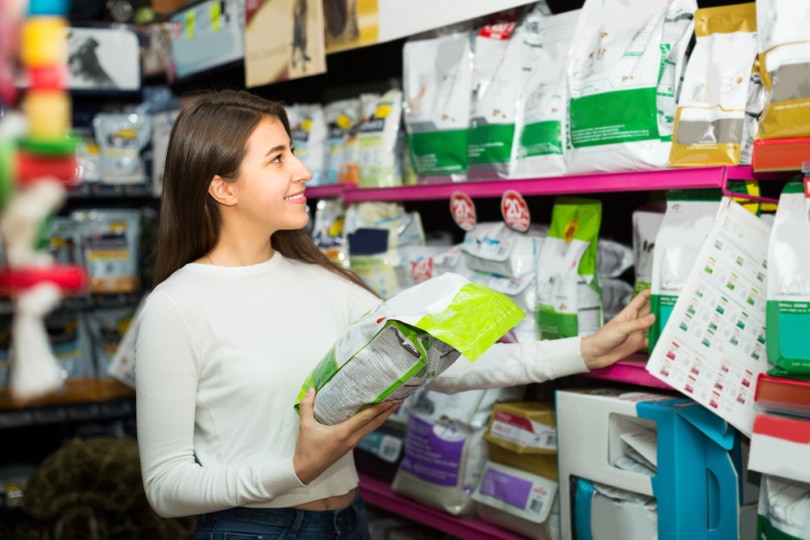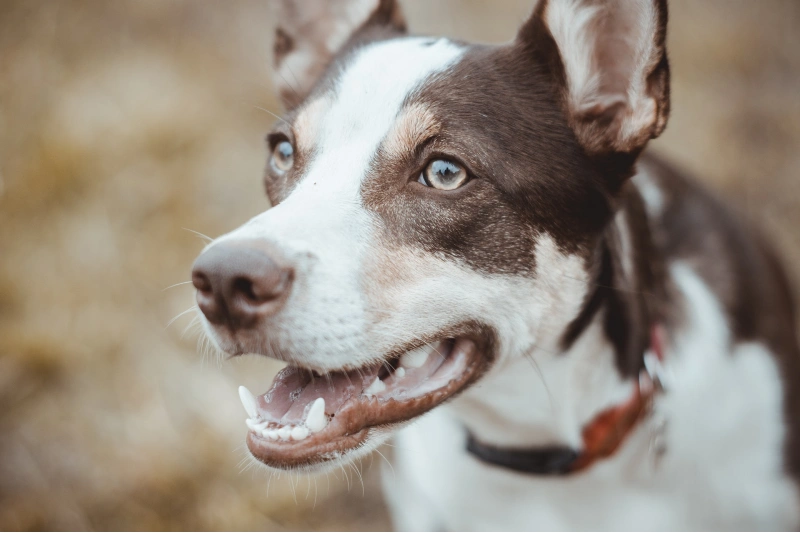Why Does My Dog Pee on My Bed? 7 Vet-Reviewed Reasons

Updated on
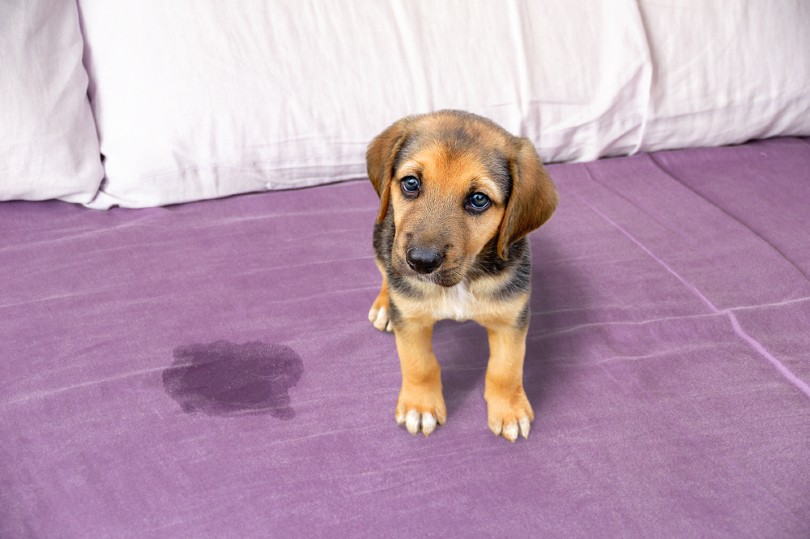
Click to Skip Ahead
No one wants to fall into their nice warm bed only to find a nice warm puddle! Beds are one of the more common places for doggy accidents, which is pretty frustrating for us humans. If your dog has peed in your bed more than once, your work doesn’t end with cleaning up the mess. It also requires figuring out the cause of the behavior and taking steps to fix it so that it hopefully won’t happen in the future.
First, we’ll look at four behavioral causes, and then we’ll take a look at the top three medical causes of your dog peeing in your bed.
The 4 Behavioral Reasons Dogs Pee in Beds
1. Poor Housetraining
One of the most common causes is poor housetraining. Dogs need consistent training to learn to void outside or in designated places in your home. If your dog was adopted at an early age or didn’t come from a reputable breeder, they may not have received proper training. Luckily, it’s not too late to give your dog the training he should have gotten as a puppy. Properly housebreaking a dog takes time and patience, but it’s not impossible.
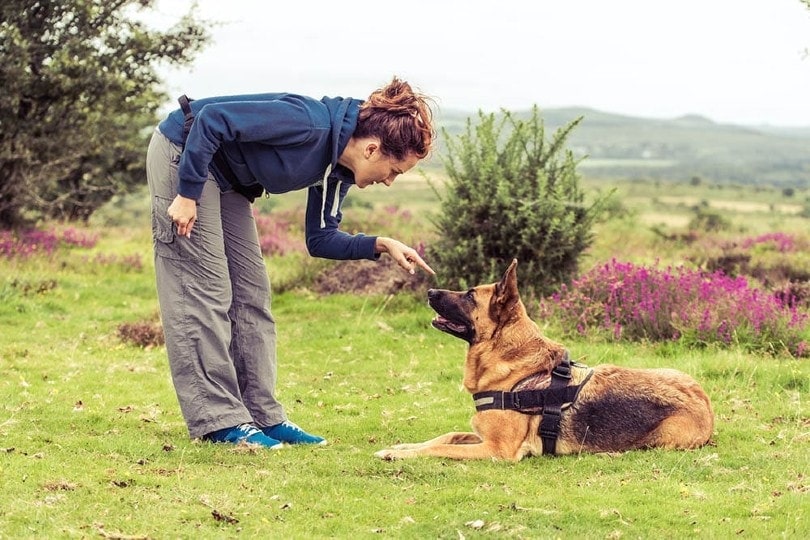
2. Stress or Anxiety
Dogs can lose bladder control if they are anxious or stressed. This might happen on an occasional basis in response to a specific trigger—for example, your dog might wet the bed when there’s conflict in the home or when he hears fireworks—but it can also happen regularly if there is a constant source of anxiety. In most cases, the best way to help your dog destress is to remove any possible stressors and give your dog lots of compassionate, loving attention in a way that makes him feel comfortable. Make sure your dog has safe spaces to retreat to if he’s feeling overwhelmed. Your veterinarian can also make suggestions about ways to help with stress and anxiety.
3. Excitement
Some dogs, especially younger dogs, have difficulty with bladder control when they are excited. For these dogs, urination usually comes when the dog is extremely active, often running around, barking, or bouncing up and down. This pattern is usually pretty easy to notice, making it simple to guess when your dog is about to have an accident. Hopefully, your pup will grow out of it as they age. But in the meantime, learn to predict when your dog’s excitement is going to spill over so you can take him outside.

4. Territory Marking
Dogs might pee in the bed to mark their territory. They have a keen sense of smell and can tell one another apart by the scent of their urine. So urinating is a common way to mark territory. You might see it develop when a new pet is adopted, or it might be a long-standing problem. Some urine marking can be mitigated by having your dog neutered.
The 3 Medical Reasons Dogs Pee in Beds
5. Urinary Tract Problems
If your dog develops a wetting problem out of the blue, a medical issue might be the cause. Urinary tract and kidney issues can both cause a loss of bladder control. You might notice that your dog just can’t hold it in as long as before or that they seem embarrassed when they have an accident. Urinary medical problems should be diagnosed by a veterinarian and can often be cleared up with proper treatment.
6. Incontinence
Even if there isn’t a specific issue causing a loss of bladder control, many dogs experience incontinence as they age. If you have an incontinent dog, you might notice small quantities of urine trickling out frequently. This happens most often when they are asleep. Your dog might not even notice what’s happening. A trip to the vet can help determine if incontinence is the problem and a solution to help it.
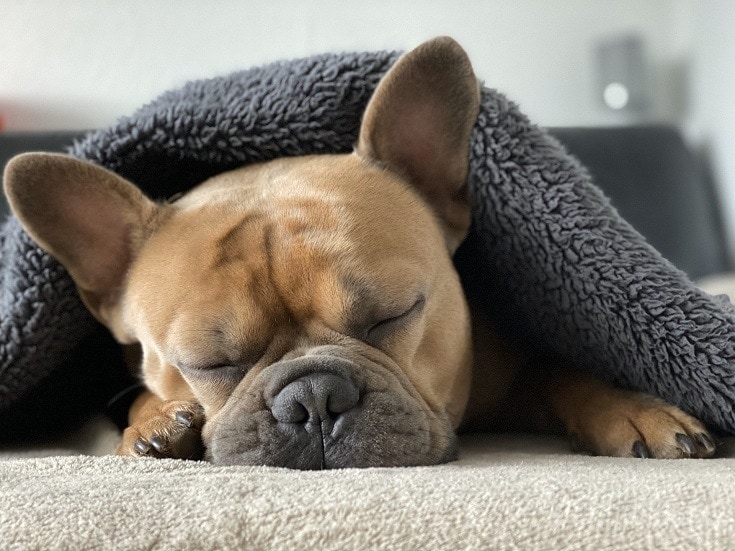
7. Diabetes
Diabetes can affect dogs just like humans, and one of the first signs is frequent urination. This is because your dog isn’t producing the insulin needed to regulate sugars, so he’s just flushing them out with water. You might notice a sickly-sweet smell, but this isn’t always present. Frequent urination is a more reliable indicator that something might be wrong. If you think your dog might have diabetes, seek veterinary care before it begins to impact their health in other ways.
How to Stop Dogs From Peeing in Your Bed
As you can see, there’s no one cause of bed-wetting, and there isn’t one solution. As stated above, you can split bed-wetting into two types. Some bed-wetting is caused by a medical issue. In this case, you should have your dog evaluated by a veterinarian to diagnose the issue and determine what’s needed to resolve the issue.
Urinary issues can also be classified as behavioral. When dealing with behavioral problems around bedwetting, consistency is most important. You may also need to restrict your dog’s access to the bedroom when you are not present.
Make sure to give your pup plenty of opportunities to relieve themselves outside or in another suitable place. Also, praise your dog for waiting to go until they are outside. If your dog pees in the bed while you’re present, don’t punish him, but firmly tell him “no”, interrupt him, then take him outside to finish if possible. Working with a behavioral trainer may also help reinforce good behavior.
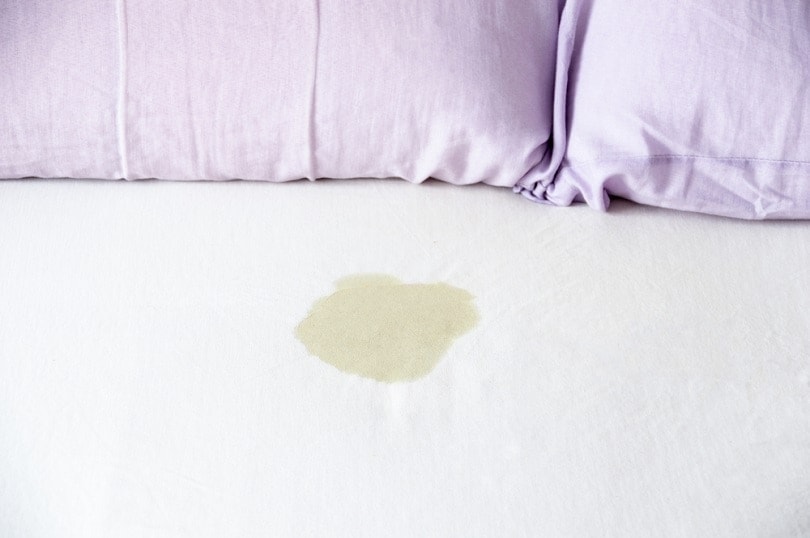
Last Thoughts
Walking in on a mess can be frustrating, but don’t lose your cool. Reacting with anger will likely only increase anxiety for your dog and lead to more behavioral issues. Instead, look at your dog’s behavior and see what went wrong. With a bit of patience, you’ll be able to find the perfect solution for you and your dog.
See Also:
- My Dog Peed on My AC Unit, What Should I Do? Tips & Prevention
- How to Stop Excitement or Submissive Urination in Dogs: 10 Methods
Featured Image Credit: cunaplus, Shutterstock



